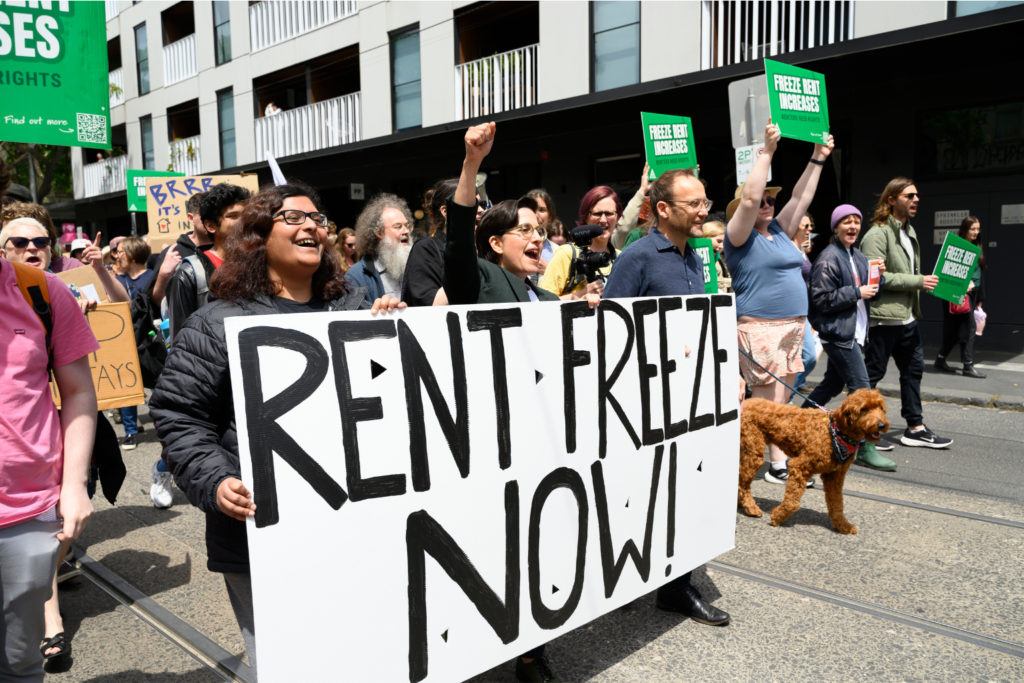Legal Battle Looms: Housing Corporations Vs. Minister On Rent Freeze

Table of Contents
The Minister's Rationale for the Rent Freeze
The Minister has justified the rent freeze, citing an alarming affordability crisis and spiraling inflation. The government argues that the freeze is a necessary intervention to protect vulnerable tenants from exorbitant rent increases, preventing them from facing homelessness.
- Economic Data: The Minister's office points to a recent 15% year-on-year increase in rental costs, exceeding wage growth by a significant margin. They also cite a rise in tenant evictions due to unaffordable rents.
- Ministerial Statements: In a recent press conference, the Minister stated, "This rent freeze is a crucial step to ensure that all citizens have access to safe, affordable housing. We cannot stand by while families are forced into poverty due to unchecked rent hikes."
- Government Initiatives: The rent freeze is part of a broader government initiative aimed at tackling the affordable housing crisis, including increased funding for social housing projects and stricter regulations on landlords.
Housing Corporations' Arguments Against the Rent Freeze
Housing corporations strongly oppose the rent freeze, arguing it will severely jeopardize their financial viability and ability to maintain properties. They claim the freeze prevents them from covering operational costs, necessary repairs, and planned improvements.
- Financial Projections: Industry reports suggest that the rent freeze could lead to a collective loss of $50 million for housing corporations within the next year, hindering their capacity to invest in property maintenance and upgrades.
- Maintenance and Repairs: The corporations highlight the risk of deferred maintenance, potentially leading to deteriorated property conditions and increased safety risks for tenants. They cite examples of delayed roof repairs and essential plumbing upgrades.
- Statements from Representatives: The CEO of a major housing corporation stated, "This rent freeze is unsustainable. Without sufficient revenue, we cannot continue to provide quality housing and necessary services to our tenants. This will ultimately harm the very people the freeze intends to protect."
The Legal Grounds of the Dispute
The housing corporations are challenging the rent freeze on several legal grounds, primarily arguing that the minister's actions overstep the bounds of existing legislation. They claim the freeze infringes upon their property rights and violates established contractual agreements with tenants.
- Relevant Legislation: The corporations argue the rent freeze contravenes the Housing Act of 2010, which protects property owners' rights to fair market returns on their investments.
- Case Law: Their legal team cites several precedents where similar rent control measures have been overturned on the grounds of unconstitutionality.
- Legal Strategies: The housing corporations are pursuing a multi-pronged legal strategy, including challenging the legality of the freeze in court and lobbying for legislative amendments.
Potential Outcomes and Impact on Tenants
The legal battle's outcome could significantly impact tenants, housing corporations, and the broader housing market.
- Scenario 1: Rent Freeze Upheld: If the court upholds the rent freeze, tenants will benefit from lower rental costs in the short term, but housing corporations may struggle financially, potentially impacting property maintenance and the availability of new rental units.
- Scenario 2: Rent Freeze Overturned: If the court overturns the freeze, tenants could face substantial rent increases, potentially leading to evictions and exacerbating the affordability crisis. Housing corporations would regain their financial flexibility but face potential backlash from tenants.
- Scenario 3: Compromise Reached: A negotiated settlement could involve a partial rent freeze or targeted assistance for vulnerable tenants while allowing housing corporations some financial relief.
The economic consequences are significant, potentially impacting investment in the housing sector and influencing future government policy.
Conclusion: The Future of Rent Control and the Ongoing Legal Battle
This rent freeze lawsuit highlights the complex interplay between tenant rights, affordable housing, and the financial viability of housing corporations. Both sides present compelling arguments, with the outcome having profound consequences. The legal battle's resolution will significantly shape future housing policy and the debate surrounding rent control measures.
Stay tuned for updates on this critical rent freeze lawsuit and its impact on your community. Understanding the implications of this ongoing legal battle is crucial for both tenants and stakeholders in the housing market. The fight for affordable housing is far from over.

Featured Posts
-
 Prakiraan Cuaca Besok 24 April 2024 Di Jawa Tengah Waspada Hujan Sore
May 28, 2025
Prakiraan Cuaca Besok 24 April 2024 Di Jawa Tengah Waspada Hujan Sore
May 28, 2025 -
 Hujan Guyur Jawa Tengah Prakiraan Cuaca 23 April
May 28, 2025
Hujan Guyur Jawa Tengah Prakiraan Cuaca 23 April
May 28, 2025 -
 Angels Win Again Extend Winning Streak To Four Games
May 28, 2025
Angels Win Again Extend Winning Streak To Four Games
May 28, 2025 -
 Rezhisser Ues Anderson Rabota Nad Novym Filmom Nachalas
May 28, 2025
Rezhisser Ues Anderson Rabota Nad Novym Filmom Nachalas
May 28, 2025 -
 Ana Peleteiro Objetivo Mundial De Atletismo En Pista Cubierta Nanjing 2024
May 28, 2025
Ana Peleteiro Objetivo Mundial De Atletismo En Pista Cubierta Nanjing 2024
May 28, 2025
